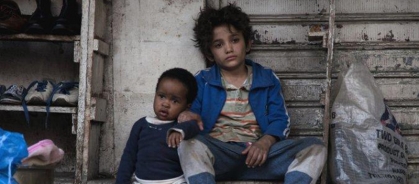Cinema of the excluded

The theme for the World Day of Social Communications, celebrated on June 2, 2019, is "From communities in social networks to the human community"; because, as Saint Paul says in Ephesians 4:25, "We are members of one another."
There is nothing that delights me more when I watch a movie than to feel how it deepens in what humanizes the characters and how it creates a world that I would like to visit, happily go there or do something to make a difference in that wounded place.
The reason I prefer small movies that tell human stories, rather than those with easily forgettable big-budget special effects, is because those movies take time to create memorable characters, whose stories are catalysts for personal, social transformation, spiritually and deeply human.
Celebrating the dignity of people who are often on the fringes of society, these films connect audiences with the human beings they see on screen. For a short time, the audience is part of that community.
The winner of the 2018 Cannes Jury Prize and the Oscar Capernaum nominated film by Nadine Labaki took me to the world of the poor in Beirut, through the experiences of a 12-year-old cat-eyed boy Zain ( Zain Al Rafeesa), who sues his parents for bringing him into the miserable world of ghettos without even bothering to search him.
Zaín is enraged when his parents sell their eleven-year-old sister to a much older suitor. No one knows Zain's real age and there is no chance for a better life without an identity card.
Labaki knows how to build and reveal the traits of a community, as he did through his previous films Where Do We Go Now (2011) and Caramel (2007.)
With Capernaum, named after the city close to Israel where Jesus exercised most of his ministry, Labaki shows a family, a community and a layer of society carried to extremes by earthly and harsh poverty that immigration from Africa and Refugees from the war in Syria became even more extreme.
It is a geographic community, united by circumstances, in dire need of people who provide opportunities for work, housing, food, medical care and education.
At first, the performance of the film about human anguish horrified me. When the Christian community finally appears at the end - the group carries guitars and sings to the imprisoned refugees - it made me wonder what Labaki was saying.
Was he implying that Christians are deaf to reality in front of them? No, I think he may have been demonstrating that human brotherhood can be communicated by people who suddenly appear and share music at the worst time, in something that is as important as meeting people's daily needs.
I would expect that group of Christians to return later with some material help, but the nun's smile and kind words have already shed light on the prisoners.
Capernaum takes you by heart and makes you see the faces of angry and lost children, the consequences of so much war and people displaced towards marginality, who can barely muster enough to make it to the next day.
The film gives you hope through Zain's resilience and the love of a stateless mother reunited with a baby Zain himself was caring for.
Japanese filmmaker Akira Kurosawa (1910-98) once said: “The most painful thing is to think that you will go see the movie and then you will forget it. It's also painful to think that you watch the movie, remember it for a moment, and then forget it. So I try to keep you from forgetting. I try to present a human being that you cannot easily forget. "
This World Day of Social Communications allows us to celebrate, through cinema, the human community near home, this human family of which we are all part because we belong to each other.
Author: Sr. Rose Pacatte, FSP, D.Min. Film review for Mr. Anthony Messenger and the National Catholic Reporter and Founding Director of the Pauline Center for Media Studies in Culver City, CA ..
Taken from SIGNIS Media, SIGNIS World publication.






